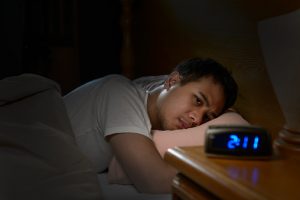 A new study has shown that patients with diabetes and prediabetes who have lower sleep efficiency than the general population also suffer from lower cognitive function. Research on this topic is not entirely new, and this study adds to the previous studies that have shown that sleep disturbances can relate to lower cognitive function in diabetes patients.
A new study has shown that patients with diabetes and prediabetes who have lower sleep efficiency than the general population also suffer from lower cognitive function. Research on this topic is not entirely new, and this study adds to the previous studies that have shown that sleep disturbances can relate to lower cognitive function in diabetes patients.
“The cognitive effects of poor sleep quality are worse for this population, which we know is already at risk for developing cognitive impairment as a result of having diabetes,” said Dr. Sirimon Reutrakul, one of the authors of the study.
Advertisement
Diabetes has been linked to cognitive impairment, including the development of dementia. This study focused on the relationship between sleep efficiency and cognitive function. The researchers used impaired glucose tolerance as the measurement for prediabetes and also included patients in the study who were already diagnosed with diabetes.
The study included 162 participants, 81 with type 2 diabetes and 81 with prediabetes. On average, participants were around the age of 55. All of the participants were tested for sleep apnea beforehand. Sleep apnea is a sleep disorder that occurs when there is a restriction in the airway that temporarily stops breathing when asleep.
The scientists used actigraphy recordings to obtain measurements of sleep duration and sleep efficiency for the participants. Sleep duration was defined as the amount of time in bed spent sleeping. Sleep efficiency was defined as an indicator of sleep quality. The participants wore the actigraphs on their wrists for seven nights.
The actigraph measures a period of sleep as a time spent with no motion. The researchers tested cognitive function by using the Montreal Cognitive Assessment Questionnaire. On average, the participants slept for six hours a night and showed a sleep efficiency of 82.7 percent. This means that 82.7 percent of the time spent in bed was spent asleep.
Sleep Efficiency Independently Affects Cognitive Function
The results showed that the length of time participants slept for, as well as the severity of the participants’ sleep apnea (if any), did not affect cognitive function. The researchers did find that a higher level of sleep efficiency was associated with an increased cognitive function in diabetes and prediabetes patients. The opposite was also found to be true. Participants with lower sleep efficiency demonstrated lower cognitive function on the questionnaire.
Analysis of the data also showed that patients with diabetes had lower cognitive function overall compared to those with prediabetes and the general population. This result was not related to age.
Advertisement
“Our study shows that lower sleep efficiency is independently associated with lower cognitive function in patients with abnormal glucose tolerance,” said Reutrakul. “Further studies should look at whether helping these patients sleep better could improve cognitive function.”
The researchers also feel that further research is needed to explore the effects of sleep and cognitive function in patients across the glucose intolerance spectrum.
Also read:
- Essential oils for sleep: 13 ways to get the best sleep ever
- This Is What Your Sleep Habit Reveals about Your Health
